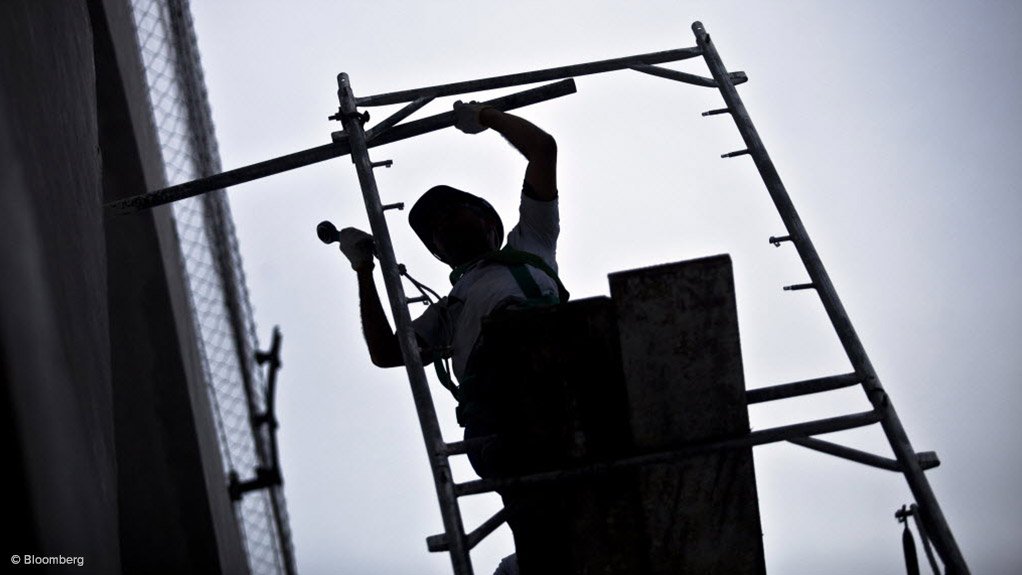Downplaying criticism of government's public procurement and tender policy, Eastern Cape Treasury audit and risk management chief director Andries Louw has argued that small, medium-sized and microenterprises (SMMEs) are easily able to access the opportunities afforded through the public tendering system, if well versed in the basic requirements of the process and able to detect certain inherent procedural failings.
Addressing the Enterprise and Supplier Development Conference, held as part of the larger Smart Procurement World South Africa Indaba, in Midrand, on Tuesday, he rubbished assertions that tenders remained the domain of larger, more established firms, asserting that smaller suppliers simply needed to understand the procurement rules applicable under the appropriate national or provincial department, public entity, State-owned enterprise or municipality.
“No [company] that sets out to get business from government can be unsuccessful, because, if you go through a series of improvements, you’ll get it. The bottom line is that the Constitution and legislation isn’t going to change and this allows you a fair opportunity.
“You don’t need to ‘know a friend of a friend’ to be awarded a tender; all the information you need is in the public domain,” he commented.
Critical to the awarding of a tender, Louw explained, was attendance at the initial compulsory briefing session, which was often set at very short notice and frequently not advertised in traditional broadsheet newspapers.
He advised companies to develop an understanding of the mediums through which government entities advertised available tenders, paying particular attention to the Government Gazette.
SMMEs were further advised to register on government’s recently established Central Supplier Database, which would be active from April next year, and would issue a supplier certificate that would soon replace various other documents required for submission during a tender application process, including a tax clearance certificate.
“Don’t attempt the ‘cold-turkey’ approach and go straight to a department or government entity; it’s best to register on the management systems,” he held.
According to Louw, the key to successful tendering lay also in the thorough examination and understanding of the tender award process, as well as an intimate knowledge of the submission requirements of each contract.
Potential bidders should first determine whether or not the issuing agency was clear in its tender requirements or if the tender document contained variables that were not well defined and lent themselves to subjective interpretation.
“If the requirements of the tender aren’t suited to you, then don’t waste your time, but, if they are unclear, ask for clarity at the initial briefing session, as the contract specifications must be clear enough for the department to discern good value over the cheapest option,” he commented.
Potential bidders should also verify the tender against the government entity’s operational plan, which was a clear indication of its mandate and should indicate whether the contract was within the scope of its responsibilities and set budget.
“Stay away if there are strange things advertised for . . . especially at a municipal level,” Louw cautioned, noting that if someone was to be punished for a noncompliant tender, it would be the supplier.
Investigations should also be made into the financial health and funding position of the government department or enterprise, as delays in the payment of suppliers was predominantly the result of poorly funded and mismanaged government entities.
“It’s important to understand the funding mechanism, as not all budgetary allocations are rolled over year-on-year, which may result in the supplier not being paid,” he said.
If the tender was being reissued as a result of the original contract coming to an end, Louw cautioned suppliers to be cognisant of possible preferential treatment being afforded to the incumbent supplier.
“There can be a bias towards the existing supplier, which can be done by setting certain preferential deliverables and timeframes that can only be achieved by that company.
“Conversely, if the relationship between the department and the incumbent has broken down, it’s a good opportunity to get business,” he said.
Any suspicion of irregular tender behaviour should, meanwhile, be immediately queried, and required a thorough familiarity with the tender document requirements and application process.
Lastly, companies should establish a database of “failed” tender applications so that they familiarise themselves with the reasons – according to the relevant department – they were not successful, making improvements thereto if within their control.
“As a supplier, you do yourself an incredible disservice if you just walk away. You need to find out if the reason you weren’t awarded the tender was other than the price given and, if so, whether it was your fault or government’s,” he concluded.
EMAIL THIS ARTICLE SAVE THIS ARTICLE
To subscribe email subscriptions@creamermedia.co.za or click here
To advertise email advertising@creamermedia.co.za or click here











